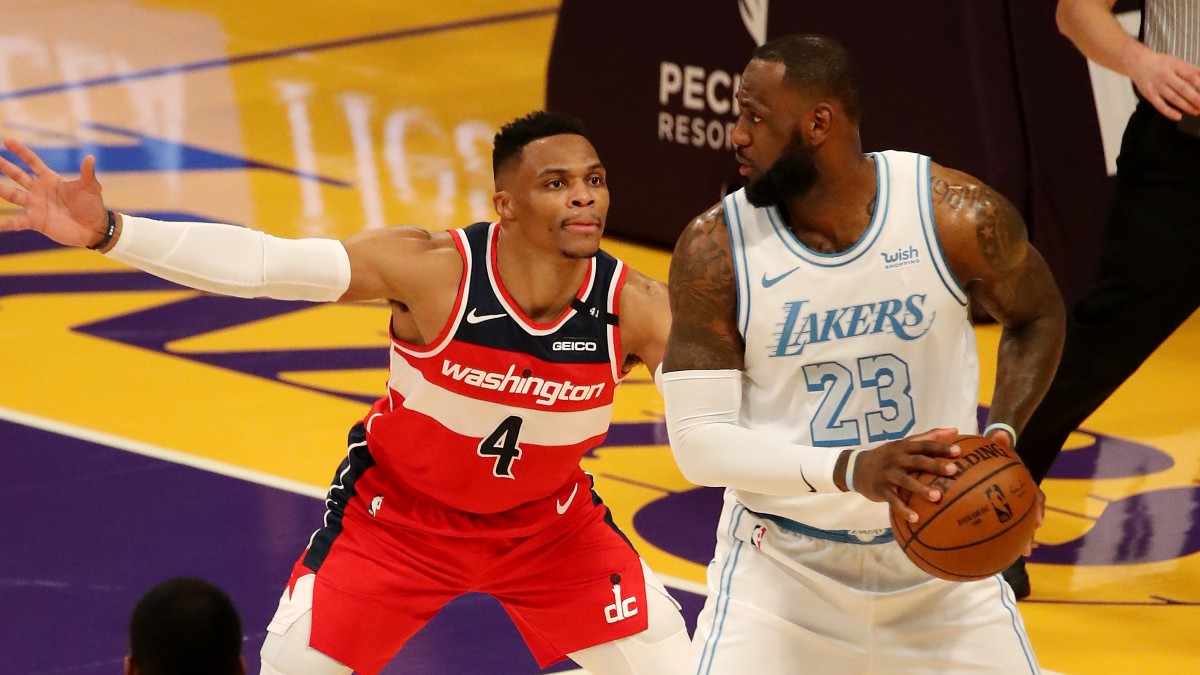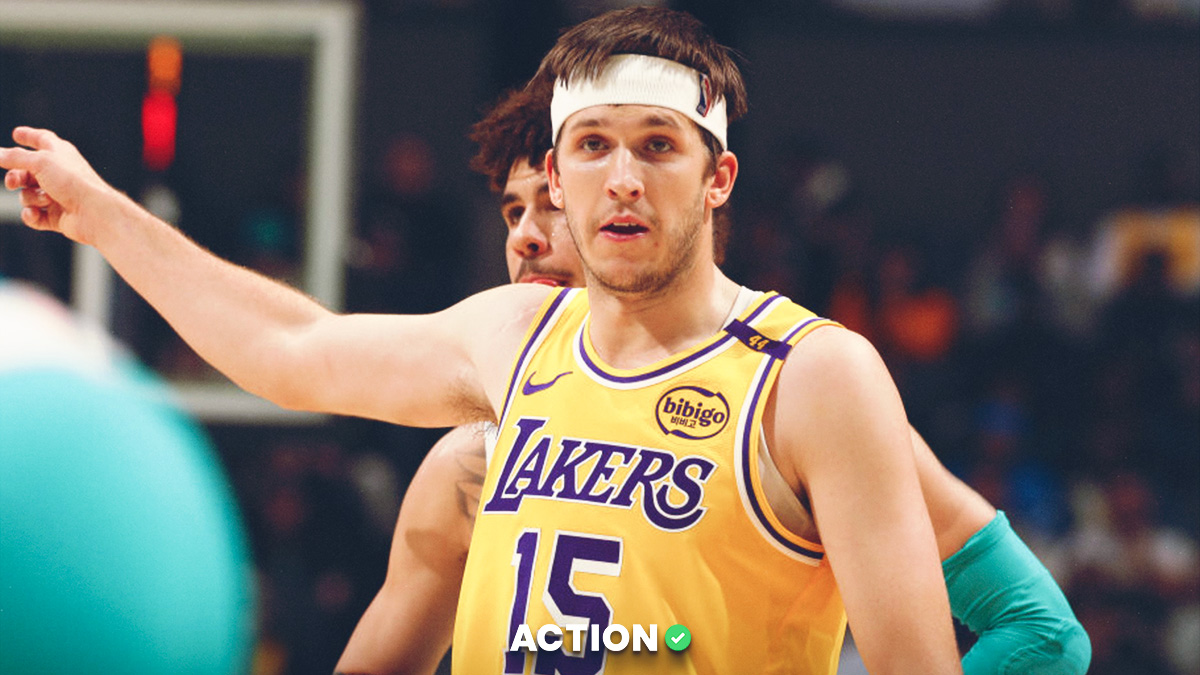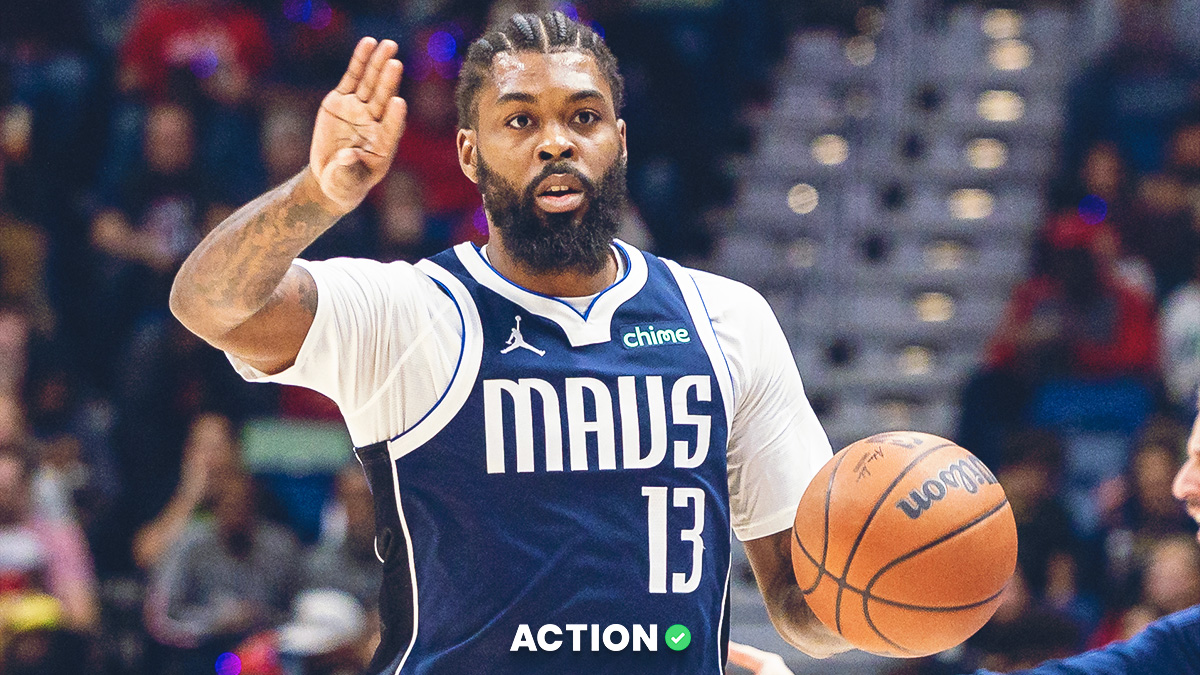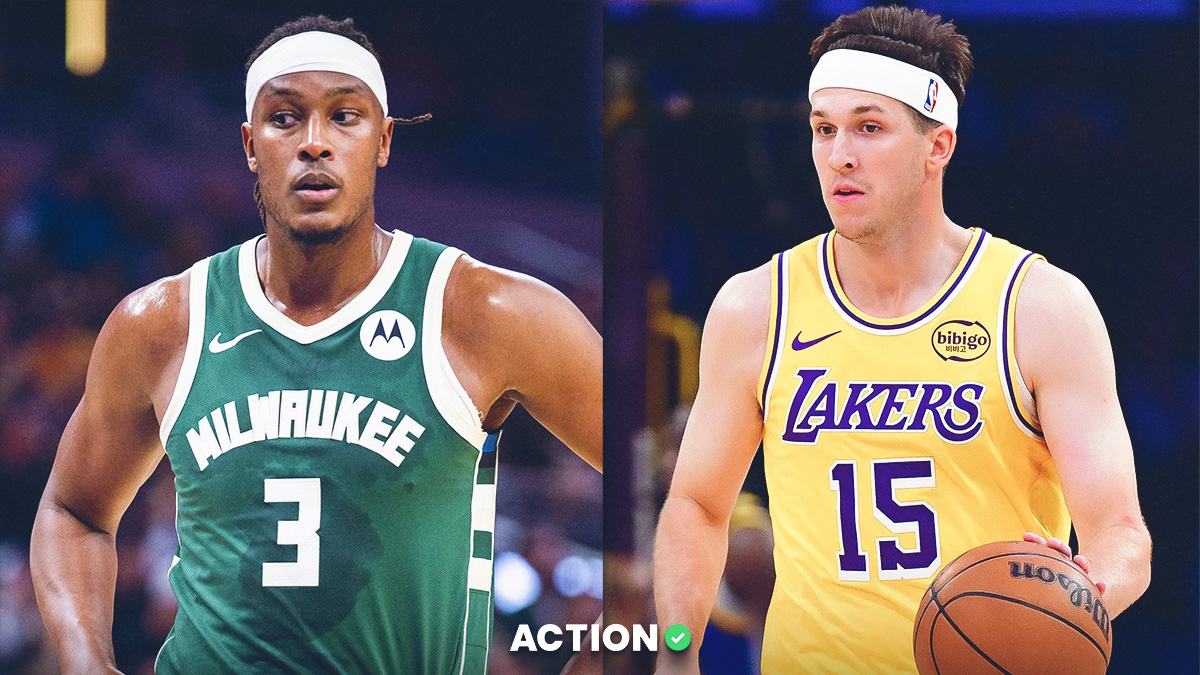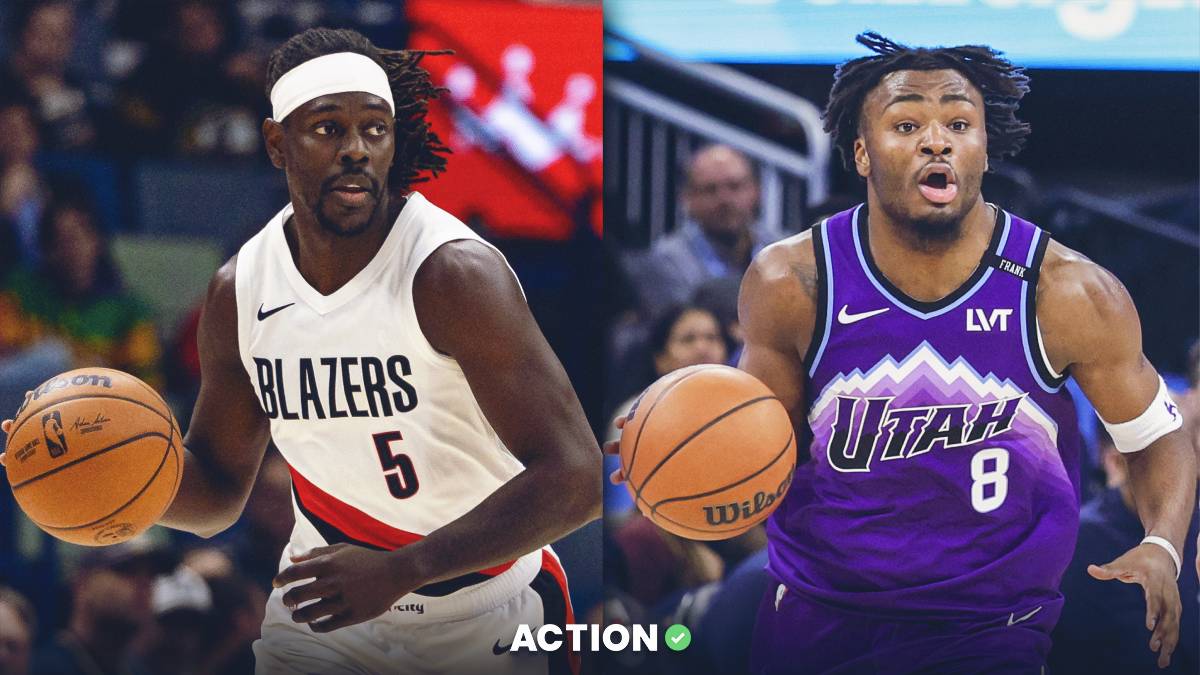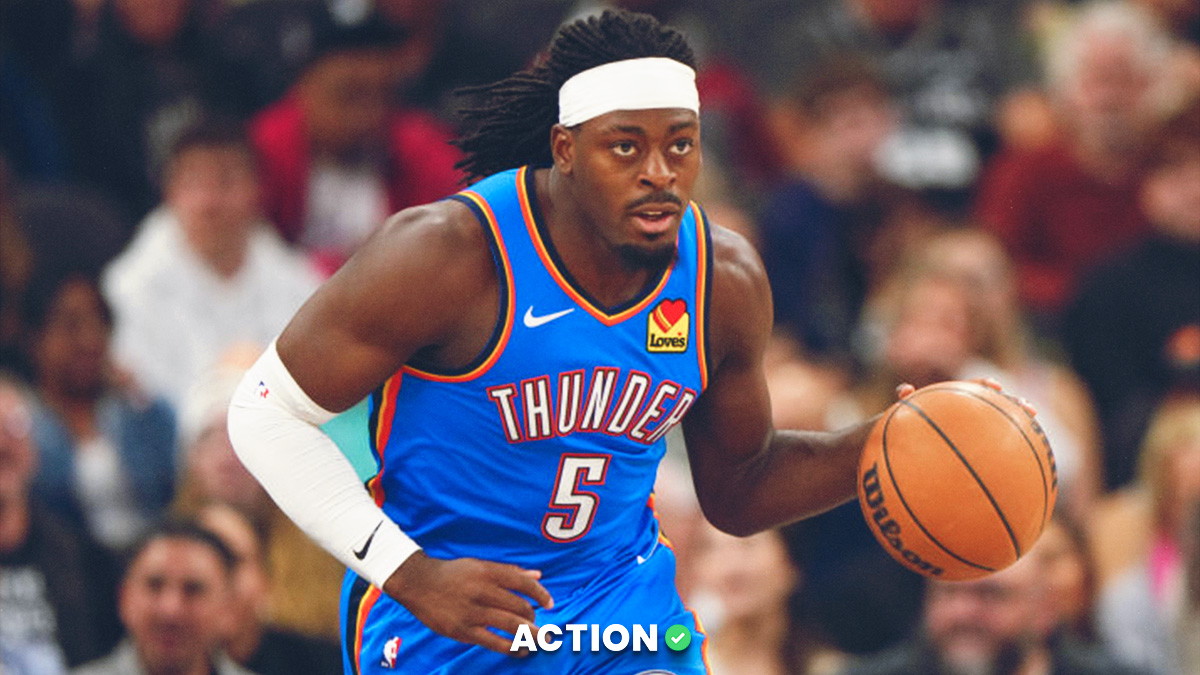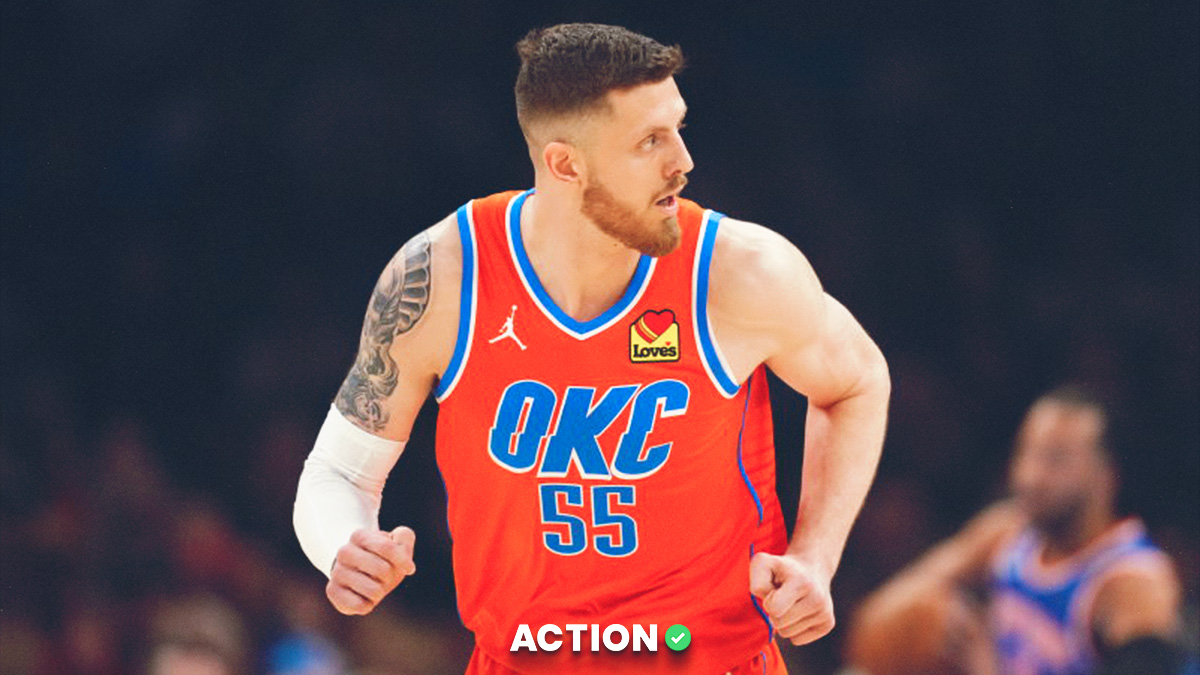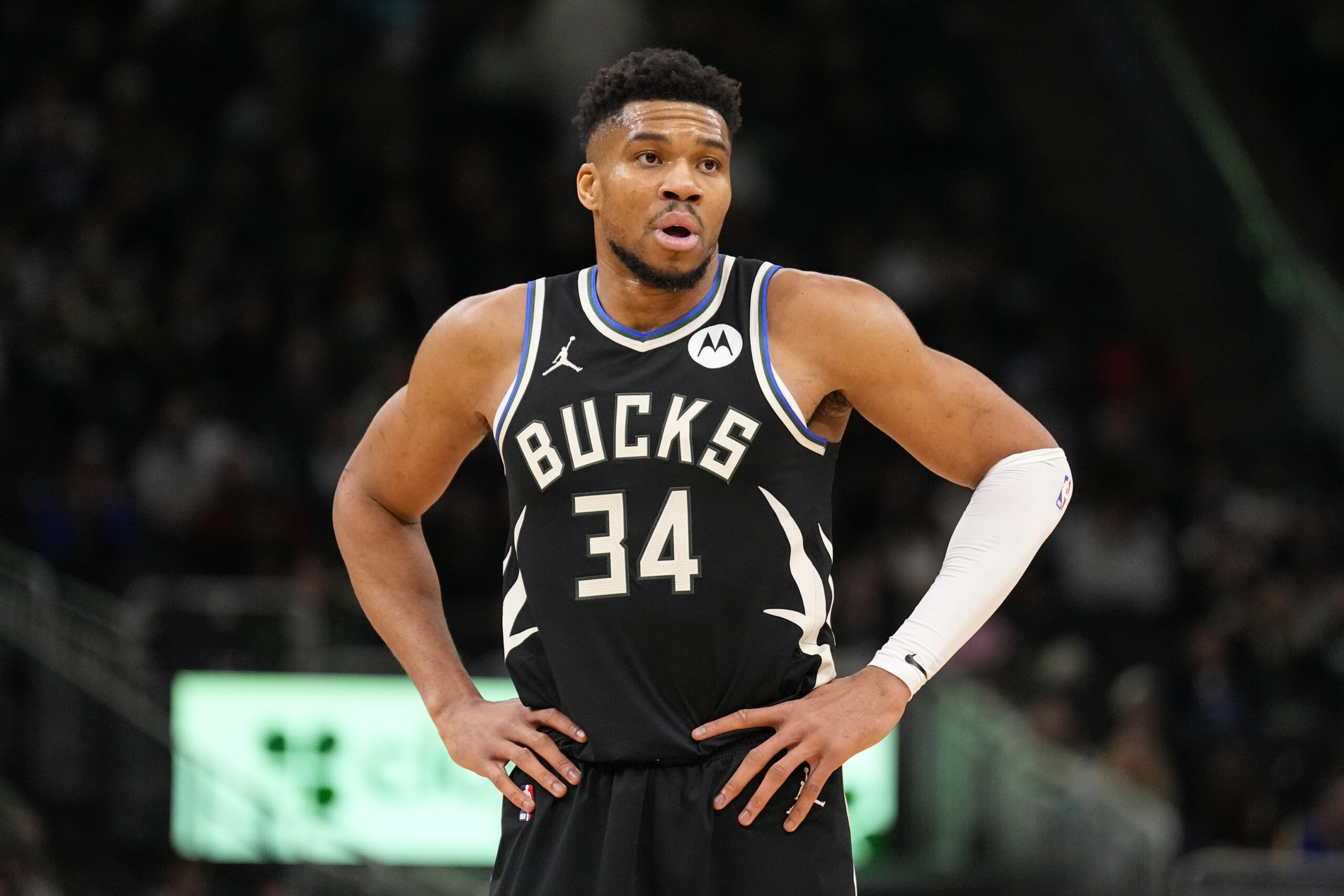If you had asked me "guess the year Russell Westbrook becomes a Laker" back in 2012 after the Thunder had lost the NBA Finals to LeBron James's Heat, I would have guessed 2016. Maybe 2018.
Westbrook is from the LA area and has always held ties there. He's a big-name superstar. He had opportunities to form his own superteam in LA and instead chose to stick it out with the Thunder until that had run its course.
Given how often players bail on teams like the Thunder in smaller markets like Oklahoma City, you might have assumed 10 years ago he'd already have been a Laker.
But instead, it's 2021, and Westbrook has come home to LA in a deal agreed upon Thursday before the NBA Draft. The Wizards take on Kentavious Caldwell-Pope, Montrezl Harrell, Kyle Kuzma, and the 22nd pick in the draft, which they used to draft Isaiah Jackson.
US books were largely unfazed by the news. The Lakers were +500 at BetMGM to win the title before the news and moved to +400. That's been the consensus across multiple US books Friday.
The Lakers were +450 when I wrote last week that it wasn't the time to get the best value on them. Was I wrong, given that the odds have already gone down?
I don't believe so.
The move for Westbrook obviously makes headlines. It also exists in a nexus in-between internet fervor for contrarianism and casual fan obliviousness.
The Twitter-world reaction is that Westbrook is a useless player whose lack of shooting makes him a liability, and that his triple-double production is a joke.
A casual fan's reaction is, "He's a superstar, right?!"
The truth is somewhere in the middle.
It's true that Westbrook is a non-shooter. He was 19th, 22nd, and 26th percentile the last three seasons on points per possession on jumpshots, per Synergy Sports. His lack of shooting took one of the most dominant offenses in Houston and made them pedestrian even with James Harden and nothing but smallball shooters around them.
In LA, Westbrook complicates matters. The Lakers have struggled with spacing already. They were 24th in 3-pointers made per 100 possessions last season and were 24th the season prior.
It should be noted this did not stop them from winning the title fully healthy in 2020, in part because, well, they made more threes. They averaged two more makes per 100 possessions in the 2020 playoffs than any other time.
The teams in the 2020 playoffs that should have been able to outpace them from deep, the Blazers and the Rockets, simply couldn't keep up with the brutal size advantage LA enjoyed. The Rockets made 15 3's per game, shooting 37% from 3, and still got waxed (with Westbrook, notably).
So on some level, the spacing simply hasn't stopped them in the postseason.
So what does Westbrook add?
Quite a bit, actually.
If you want to understand why the Lakers did this deal, think of it less in terms of addressing weaknesses to make the Lakers indomitable and more about doubling down on strengths that make them elite.
The Lakers' model in winning a championship was: awesome defense, a relentless transition attack, and LeBron with some AD thrown in.
Defensively, Westbrook can be a disaster. But so much of that can be tied to effort and focus, two things that can be improved by a lower offensive usage rate. Simply put, if Westbrook's not having to gear up and slam on the accelerator to get to the rim every play, that gives him more energy to stay locked in defensively. Frank Vogel has gotten players who were not considered great defenders to play great defense. That's a team strength.
There may be no better weapon in transition than Westbrook, outside of Steph Curry pull-up 3's or Giannis Antetokounmpo's rim-wrecking. Westbrook is still, even after knee surgeries, lightning-fast. He gets downhill at a gear no player can keep up with.
You've got LeBron and Westbrook screaming downcourt on you 2-on-2. Good luck.
Westbrook isn't a top-level passer. He's a good passer, he's just not as good of a passer as his annual assist numbers indicate. He doesn't pass directly to pockets, he can't reverse the ball to the opposite corner perfectly, he doesn't marvel with control.
But Westbrook is great at creating assists, and those are two different things. If you're a great passer, you'll be great at creating assists. But you can be great at creating assists without being a great passer.
Westbrook has been top-four in assists per game each season since 2015 with the exception of the Rockets year where he was asked to play off-ball next to Harden.
"But," you might ask, "won't this year be similar with LeBron?"
Yes, it'll probably fall somewhere in the middle between that Rockets year where they were still trying to be a Harden team with Westbrook jammed in, and his OKC and Wizards years.
However, the value is what he'll do for the rest of the offense, and in particular, Anthony Davis.
Westbrook learned in OKC how to get his bigs easy buckets. He and Steven Adams would tear up teams in simple pick and rolls. He found Serge Ibaka constantly not only for dunks and layups, but short-range jumpers… which are an Anthony Davis specialty.
The Lakers have struggled at times when Davis has had to carry the team offensively. He's a marvel in terms of his diverse skill set, but he doesn't dominate anything but the smallest of mismatches in the post and is partial to those jumpers.
Davis was hurt last year, but he was also 15th percentile on jumpshots. The best way to maximize his impact is to get him in positions to catch the defense off-guard or in-between rotations, not going straight at them. That's where Westbrook can create easy buckets. Stay home on Davis baseline and Westbrook is getting to the rim, with Davis and James crashing.
I'm not going to put lipstick on a pig here and tell you the fit with LeBron is good.
It's not.
James is a fine jumpshooter at this point in his career; he'll have nights where he tears opponents up with it and nights where it doesn't fall. His 3-point shot has bounced between 33% and 36% the last half-decade. It likely won't go down much or up much.
James likes gearing up, driving, and dishing to shooters when the defense helps. Westbrook likes gearing up, driving, and dishing to finishers when the defense helps.
Their games do not intermesh. Their games do not fit one another. If Westbrook suddenly decides he wants to commit to off-ball cutting? Then sure, that's a whole different deal. For the moment, let's assume that's not the case, which means when the two are on the floor, it's a whole lot of my-turn-your-turn.
The bigger reason Westbrook helps, honestly, before all this other on-court stuff?
He's a floor raiser who helps LeBron rest or Davis miss time.
LeBron James will be 37 years old next season. Father Time may be having a harder time getting wins vs. NBA players than he used to, but he's still undefeated. James said after his ankle injury last season, he would "never be 100 percent" again. That's both weird and concerning.
Davis' injuries are not his fault; I want to stress this. This is not a toughness issue; he tried to play with a seriously injured groin in the last game vs. the Suns. It is not a failing of Anthony Davis that he can't stay healthy.
He can't stay healthy.
He is constantly exiting games for maladies. Sometimes he returns, sometimes he doesn't. He endures stretches of missing multiple games each season.
These two superstars are health-compromised.
Westbrook is a tank, still. Even after the knee surgeries, he comes back and goes 100 percent every game and plays in most. Westbrook has missed more than 16 games once in his career. In the last five seasons, Davis has played in 304 regular-season games. Westbrook has played in 356, 52 more.
When Davis and James went down last season, the Lakers fell apart. That led to them falling to seventh, having to play the Warriors to get into the playoffs, and then facing the Suns, who had homecourt advantage.
James needs to miss two weeks because his back (which has sometimes been an issue) needs a rest? No problem, Westbrook and Davis can carry them. Does Davis suffer some malady that keeps him out three weeks? James and Westbrook might lose to the top-end teams depending on the schedule.
This is crucial: securing a regular-season record that both affords you a better path to the Finals and homecourt while allowing you to rest is not about beating every team. It's about beating most of the teams. Only four teams had a better than .500 record vs. the teams top-ten in point differential last season.
For the most part? You need to beat the teams you're better than. The Lakers with two of the three stars can beat all but the top ten teams. The Lakers with one star can probably beat the bottom-10 teams.
Look at the Nets this year. Kevin Durant, James Harden, and Kyrie Irving all missed significant time and they still finished with the 2-seed. You don't have to be dominant to get the record you need.
The problem of course, is how in the playoffs your weaknesses are usually amplified. If the Lakers do not find any shooting, at any point, then yes, they are going to be a bad playoffs bet.
But Westbrook raises their regular season ceiling substantially just by his availability while still allowing them to dominate with their strengths.
There are all sorts of ways this goes wrong. If they try and turn Westbrook into a spot-up option, or Westbrook just decides he needs to shoot more 3's, then that's bad. If Westbrook's competitiveness causes tension with James's relaxed control or with Davis, then that can be an issue. Westbrook cannot and will not "turn it off" in terms of his mentality.
What if the Lakers re-sign Davis's good friend Andre Drummond because he's Anthony Davis's good friend, and they are overrun by a team with the ability to simply outpace them offensively, even in slugfests? Or if simply, Davis and/or James cannot stay healthy or even if Westbrook's knee causes issues, given that he's well past 30 as well?
We're on the precipice of free agency. Some team will make a move. And there's a good chance the Lakers start slow as they try and figure out some things. There will be a better chance to bet the Lakers than +400.
However, I'll be eying the regular-season win total with a focus on the over. Russell Westbrook may not make the Lakers better, but there's a good chance he can stop them from being worse.


